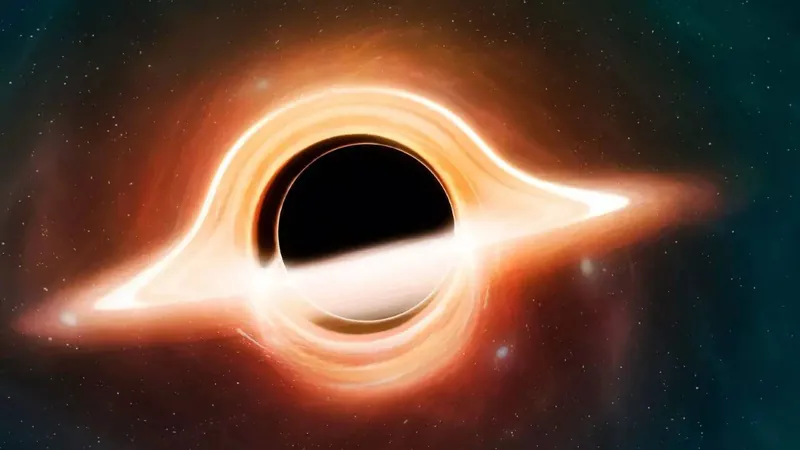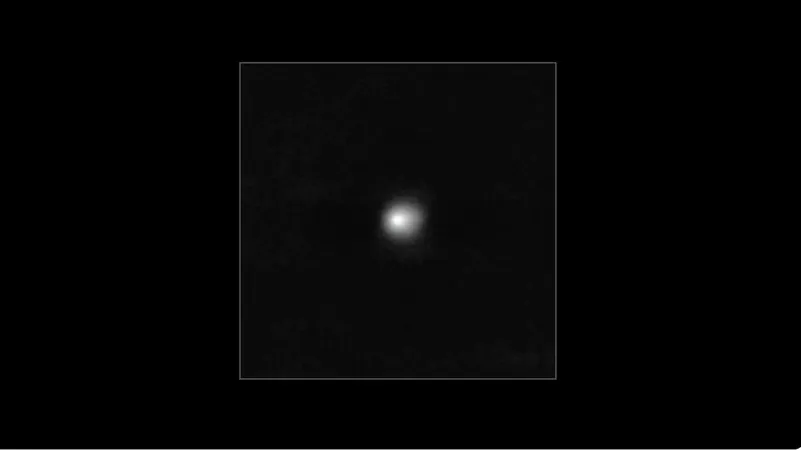
Shocking New Study Links Black Holes to the Expansion of the Universe!
2024-11-04
Author: Mei
In a groundbreaking revelation that could change the very fabric of our understanding of the cosmos, astronomers have stumbled upon tantalizing evidence connecting dark energy—the enigmatic force that propels the universe's accelerating expansion—to black holes. Dark energy represents about 70% of the total energy density of the universe and is believed to have emerged shortly after the Big Bang some 13.8 billion years ago. Despite its critical role, the origins and nature of dark energy have remained shrouded in mystery until now.
The Enigma of Dark Energy
Dark energy is a pervasive force that drives the acceleration of the universe's expansion. It is hypothesized to have been formed in the aftermath of the Big Bang, yet its genesis remains one of the most profound questions in cosmology. New insights have emerged suggesting that dark energy might not be uniformly distributed throughout the cosmos; rather, it could originate from the centers of massive black holes, an idea that some may consider radical yet increasingly plausible.
Key Findings from Recent Research
The study, released on October 28, highlights a fascinating link between dark energy density and the mass of black holes, indicating a pattern as the universe evolves. Gregory Tarlé, a physics professor at the University of Michigan and co-author of the study, emphasized that the strongest gravitational forces exist at the heart of black holes. He posited that when a massive star collapses into a black hole, the material could transform back into dark energy, echoing a reverse Big Bang scenario.
To investigate this hypothesis, researchers utilized the Dark Energy Spectroscopic Instrument (DESI) attached to the Nicholas U. Mayall 4-meter Telescope in Arizona. This advanced tool monitors millions of galaxies monthly, enabling scientists to dissect how the universe has expanded and to refine their estimates of dark energy density.
The Implications for Cosmology
In their analysis, researchers compared the growth of black holes with dark energy levels at various stages in the universe's life cycle. Their investigation revealed a striking synchronicity: as new black holes formed from dying stars, dark energy levels appeared to rise correspondingly. This tantalizing observation lends credibility to the theory that black holes could indeed be a significant source of dark energy.
The repercussions of this discovery could extend far beyond dark energy itself; it may help to resolve the ‘Hubble tension’—an ongoing debate among astronomers regarding varying measurements of the universe's expansion rate. However, despite the intriguing connections made so far, astronomers caution that further observational data from DESI and other cosmic exploration projects will be essential before drawing firm conclusions.
As Tarlé aptly noted, “Whether black holes are dark energy, connected to the universe they inhabit, is no longer just a theoretical question; it is now something we can test.” This statement underscores the imminent shift in cosmological research and the potential for future discoveries that could redefine our understanding of the universe.
As we continue to peel back the layers of cosmic mystery, one thing is clear: the depths of space hold secrets beyond our wildest imaginations, and we are just beginning to uncover them. Stay tuned for more astonishing revelations from our universe!


 Brasil (PT)
Brasil (PT)
 Canada (EN)
Canada (EN)
 Chile (ES)
Chile (ES)
 Česko (CS)
Česko (CS)
 대한민국 (KO)
대한민국 (KO)
 España (ES)
España (ES)
 France (FR)
France (FR)
 Hong Kong (EN)
Hong Kong (EN)
 Italia (IT)
Italia (IT)
 日本 (JA)
日本 (JA)
 Magyarország (HU)
Magyarország (HU)
 Norge (NO)
Norge (NO)
 Polska (PL)
Polska (PL)
 Schweiz (DE)
Schweiz (DE)
 Singapore (EN)
Singapore (EN)
 Sverige (SV)
Sverige (SV)
 Suomi (FI)
Suomi (FI)
 Türkiye (TR)
Türkiye (TR)
 الإمارات العربية المتحدة (AR)
الإمارات العربية المتحدة (AR)